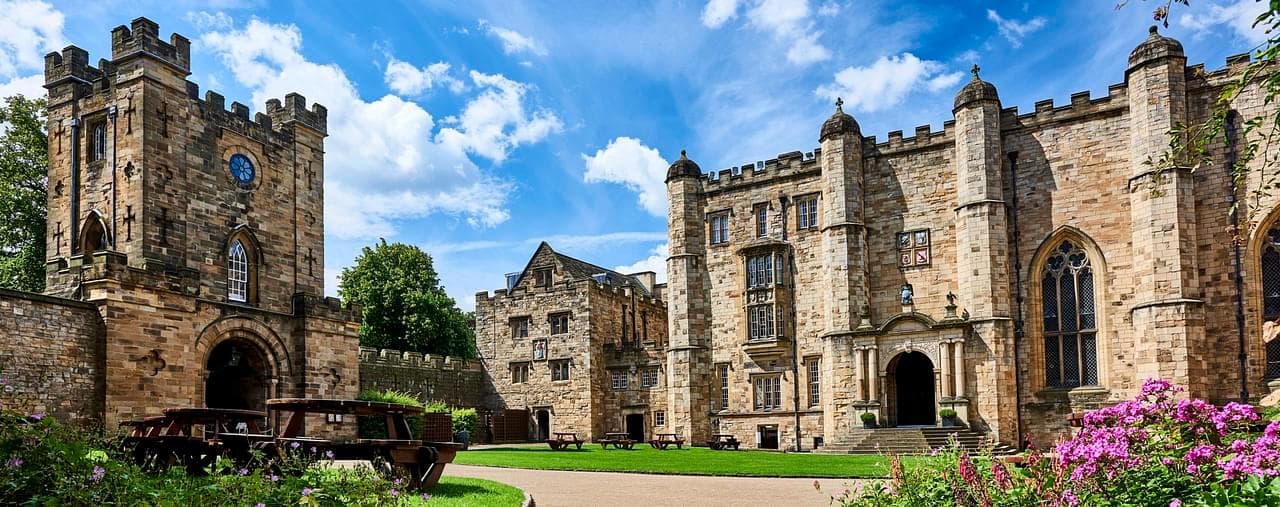Program structure
Year 1
In the first year, you will take three modules from History and three from Classics. You must choose at least one History module which is either Medieval or Early Modern; and one which is Modern. The modules on offer reflect the research interests of staff.
History modules have previously included:
-
Reformation Europe
-
Tensions of Empire
-
The Birth of Western Society, 300-1050
-
New Heaven, New Earth: Latin Christendom and the World, 1000-1300.
In Ancient History, you will take two interdisciplinary modules that serve to give you a grounding in the central periods of Greek and Roman culture.
Modules have previously included:
The third module is a matter of choice. Modules have previously included:
If you have already studied Latin or Greek, then it is possible to take an Intermediate course in either language.
Year 2
In the second year, you will take three modules from History and three from Classics. Second-year History modules tend to focus more on particular periods and events, and there are fewer survey courses. One of the History modules taken must be ‘Conversations with History’. This is a seminar-driven, student-led module, which encourages you to think about the way in which history is written. You will choose one from a range of possible strands in this module, each of which focuses on a particular historical debate or phenomenon. You must choose one History module which is either Medieval or Early Modern; and one which is Modern (the Conversations strand will count as one of these choices). There is no other restriction on choice.
Modules have previously included:
-
Conversations Strands: the Usable Past; the Built Environment
-
History and Guilt
-
Power and Peoples
-
Inventing the Middle Ages
-
Monarchy
-
Empire, Liberty and Governance.
Other modules have previously included:
-
Hard Times: British Society c. 1800-1901
-
Modern China’s Transformations
-
The American Half-century: the United States since 1945
-
The King’s Two Bodies: Rulership in Late Medieval Europe
-
The Ottoman World, 1400-1700.
In Ancient History, second-year historical offerings have previously included:
-
The Hellenistic World
-
Crisis of The Roman Republic
-
Emperors and Dynasties
-
Roman Buildings and their Decoration
-
Ancient Political Thought and Action.
It is also possible to take a Beginners course in Latin or Greek (this will take up two of your options in Ancient History), or to continue your study of either language.
Year 3
In the third year you may take the equivalent of three modules in each department, or you may take the equivalent of four modules in one and two in the other.
In History, you may choose a triple-module Special Subject, taught entirely through seminars, which involves the close study of primary sources. You will work in a small group with a specialist in the field, with a three-hour seminar every week. Or you may choose to do supervised independent research leading to the writing of an extended Dissertation. Given this emphasis on focused study and independence, there is no requirement for you to study a range of periods in this year.
Third-year single modules are all strongly reflexive in character, encouraging you to think about the ways in which historical knowledge is produced. Third-year History modules are all specialised, research-led topics.
Modules in History have previously included:
Special subjects:
-
A World Turned Upside Down: Radicalism in the English Revolution
-
The Disappearance of Claudine Rouge: Murder, Mystery and Microhistory in Early Modern France
-
Light Beyond the Limes: the Christianization of Pagan Europe, 300-1000
-
From War to Cold War: US Foreign Policy, c. 1944-1948.
Single modules:
-
Anglo-Saxon Invasion? The Search for English
-
Origins Revolution and History
-
Interpreting Conflict in Post-Colonial Africa
-
History of American Capitalism.
In Ancient History, modules have previously included:
-
Roman Syria
-
The Later Roman Empire
-
Greeks and Persians
-
Urbs Roma
-
Writing Alexander.
